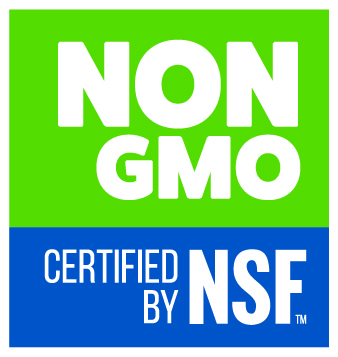
FAQs
WHAT DOES ORGANIC MEAN?
Born Free Organic eggs are derived from hens reared, housed, and fed in compliance with the regulations of the National Organic Program administered by the USDA. This requires strict adherence to rules concerning the source and type of ingredients in diets, housing, freedom from exposure to pesticides, as well as exclusion of chemicals or substances that are not approved. Hens producing eggs under the National Organic Program are allowed free access to the entire area of their houses and have access to the outside, subject to acceptable weather conditions and low risk of disease exposure.
What does Pasture Raised mean?
Born Free Pasture Raised hens have a housing system that provides a more expansive outdoor area that is at least equivalent in size to the indoor space, and often considerably larger. The hens will be able to forage for plants, as seasonally available.
What does Free Range mean?
Born Free Free Range hens are free to roam in spacious barns, and they have access to the outdoors. The outdoor access can vary from outdoor runs that are covered with a roof to more extensive fenced pasture area with no roof overhead.
What does the Certified Humane mark represent?
Are Born Free eggs kosher?
Yes. The Orthodox Union, the largest kosher certification organization in the world, certifies Born Free as kosher. Each Born Free carton carries the symbol to clearly identify it as kosher. For Kosher information, see www.oukosher.org.
What does the NSF Non-GMO mark represent?
How often does a hen lay an egg?
The entire time from ovulation to laying is about 25 hours. About 30 minutes later, the hen will begin making another egg. A hen lays about 9 eggs in a 10-day period.
What is the difference between brown and white shelled eggs?
There are no nutritional or functional differences. Egg shell color is determined by the breed of hen and is not related to quality, nutrients, or flavor.
How long will eggs stay fresh?
Fresh shell eggs will remain good for 2-3 weeks after the “sell-by” or “best-before” date, if they are not cracked and have been refrigerated properly. They must be refrigerated as soon as possible after purchase from a refrigerated case. Hard-cooked eggs should be consumed within one week.
What is the best way to store eggs?
Store eggs in their carton to minimize absorption of refrigerator odors and reduce the risk of breakage.
Is it safe to eat raw eggs?
It's best not to serve raw or lightly-cooked dishes made with eggs. While the risk of salmonella poisoning from eggs is very low, precautionary steps should always be taken to heat eggs for recipes calling for raw or lightly cooked eggs.
Many recipes that require raw or undercooked eggs can be easily revised with a cooking step. Whole eggs, yolks, or whites can be combined with sugar, water or other liquid from the recipe and should be cooked over low heat until the mixture coats a metal spoon with a thin film or reaches 160° F.
How rare is a double yolk egg?
It’s always an exciting morning when you break open a Born Free egg and find a double yolk. Our sources say that only 1 out of 1,000 eggs has a double yolk. Maybe it’s a sign of a lucky day ahead!
Do you give your hens hormones or antibiotics?
No, never! By FDA regulation no artificial product affecting growth may be administered to any food-producing animal or poultry in the United States. We also restrict antibiotic supplements in our hens’ feed and the administration of any antibiotics to our hens.
Where are Born Free eggs produced?
Born Free eggs are produced by approved, licensed producers on farms located throughout the United States and the eggs are distributed locally. Producers are selected for their ability to meet our quality standards.
Where can I send my favorite recipe to be added to your website?
We are all always excited to hear of new recipes our Born Free fans are using in their kitchen exploration. If you have a recipe you would like us to feature on our website, blog, or social media streams please send to: marketing@bornfreeeggs.com
How can I be featured in a Born Free Blog post?
We love to include guest posts on our blog, so if you have ideas on how you can add interesting stories or expertise to our blog please reach out to us at marketing@bornfreeeggs.com
I can’t find Born Free eggs, what should I do?
The first thing to do is check out our Store Locator on the homepage here BornFreeEggs.com/store-locator/. If you find that you do not have a grocery store near you that sells Born Free eggs, please let us know where you shop and we will try our best to let the store manager know. You can always mention it to them too!


